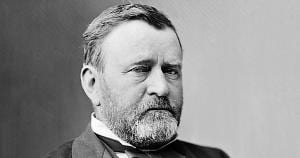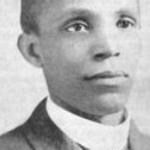
Some things we cannot control. Other people decide differently than they should or things just do not go the way we planned. We fail because we called “heads” and “tails” came up.
Sometimes, however, we fail having almost won.
A battle won, yet a war lost. Why? A lack of persistence can squander gains. In our lives, in societies, lives and nations can fail when exhaustion appears. To finish a job requires a will to keep moving forward, but we can become weary of the fight.
We hope for peace, when there cannot, yet, but peace.
Worse, boredom can keep us from gaining the full benefits of victory. Personally we might start a diet, develop a plan to learn a new language, make a resolution to improve some part of our character, but the meal plan grows tedious, the language software repetitive, and the moral resolutions tiresome. We quit.
And much we gained is lost and benefits we almost had never are our own. That is sad in the case of diet or a new language, but tragic in a justice issue in the life of a nation. Pro-life people get tired of hearing about abortion. We might get weary of discussions of race. We have tried to do something about poverty.
Moral exhaustion. . .let’s just turn on some comfort video. . .is the enemy of souls and systems that seek justice. We tire of seeing “heads” and so we turn the coin over to see something new.
A Tragic Example
Chance is not why Reconstruction failed
The Confederate States of America lost the Civil War, because the majority of people in the United States opposed the secession. Over the course of the fighting, the leadership of the United States adopted an abolitionist position and were sustained in a national Presidential election. While the rebellion was being crushed, the Congress, at the urging of the President, passed the XIII Amendment and slavery in the United States was ended forever.
Sadly, Mr. Lincoln was shot and one of the most open racists ever to occupy the White House, Andrew Johnson, became President. Abraham Lincoln had grown morally on the issue of slavery like many in the United States. Johnson did not wish to grow from his position that the USA must be a “white man’s country.” He battled the “radical” Republicans in Congress and and handicapped reconstruction for almost four years.
Good work was done, but the defeated Confederates had time to recover lost power at a local level. The Congress and President Johnson came to such an impasse that the President was impeached. All of this distracted the nation from the good work that had to be done. General US Grant did what he could, at some risk to his position, to defend the rights of the newly freed without the support of the Commander in Chief.
Terrorism grew in the parts of the United States that had rebelled. Thankfully, General Grant was elected President and he broke the terrorists, strengthened Federal justice systems, and enforced the XIII, XIV, and XV amendments. His push for fifteenth amendment, which attempted to protect African-American’s right to vote, was critical to success.
Grant was a flawed President, yet he also faced a terrifying fact: people in the United States had grown tired of the moral crusade. They were less moved by the horrible stories of lynchings and voter suppression after decades of hearing about slavery. Too many white Americans felt they had done enough for “them.” When Grant ran on the slogan “let us have peace,” he felt that meant pushing to final victory in civil rights for African Americans. Too many of his own voters thought he was going to make the pain of the Civil War go away. They voted for morphia and Grant gave them a stimulant as he busted the Klan.
The Grand Old Party was exhausted. As a result, to keep power, they began to reach out to former rebels and compromised their alliance for African-American citizens. Moral exhaustion allowed the former Confederate States to impose slavery-in-all-but-name through penal servitude where African Americans were imprisoned at high rates on trumped up charges. Sharecropping, and the debt that came with it, was effective to dehumanize those not in prison.
The United States won the Civil War, but the Confederates won Reconstruction.
What to do?
Hard work is tiring. Moral exhaustion is danger in long term projects, but the experience of the United States reminds us we must finish the job. We can finish the job by observing why moral exhaustion helped ruin Reconstruction.
We cannot waste time with Andrew Johnson. The foe of change cannot be allowed to impede needed change. The moral moment will pass in a nation. We will grow weary as individuals. There is only so much health to a person or time for a cause. An Andrew Johnson is the guy who falls up, finds himself in leadership, but opposes the core values of the organization. Remove the Andrew Johnsons from leadership in a nation or a non-profit.
In our personal lives, the “Andrew Johnson” was the impulse seemed necessary to get to the goal, but once there is dangerous to that goal. After all, Johnson was a Democrat who helped get Lincoln a second term on a “Union Ticket,” yet then was a heartbeat away from the White House.
A Johnson impulse is smoking to lose weight. Weight gets lost, but at what cost to our health?
Second, we need Grant and then a better Grant. 
We need someone who will not give up on the goal, but see it through. If Grant cannot, then we need a new and better Grant. The Civil War was the most important civic event to that time and making sure that victory was not wasted was of paramount importance. The Republican Party should never have nominated anyone that could not deliver on the full civil rights for African Americans. The Party should never have bartered federal support for African Americans for four years of Rutherford B. Hayes.
Who are the Grants in our lives? Who are the tenacious winners who encourage us not to quit or lead us to moral victory? Find those people and give them power.
Applied to our personal lives, we need to keep the main thing in the forefront of our will. What is God calling me to do? What is the biggest change I need to keep making in my life? Be a Grant. Find a Grant who will encourage you to keep calm and carry on.
Do not get tired or weary of well doing.











